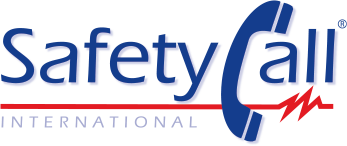Rick Kingston, President, Regulatory and Scientific Affairs and Sr. Clinical Toxicologist at SafetyCall International will speak on the topic of adverse event and post market surveillance related to human performance dietary supplement at the upcoming summit sponsored by the NIH Office of Dietary Supplements, NSCA, and Abbott Laboratories.
Dietary supplements to enhance athletic and general human performance are widely advertised and readily available. Manufacturers and distributors are responsible not only for ensuring the safety of these products before they are marketed to the public, but are also required to report all serious product-related adverse effects to the FDA, post-market.
As previously reported by FDA, the Agency has concerns regarding dietary supplement under-reporting of adverse events (AEs) and noncompliance with current good manufacturing practices (cGMPs). Although compliance is improving, many manufacturers continue to struggle with implementing robust postmarket surveillance within their companies to insure that all events, serious and non-serious, are documented and those that meet the definition for “serious” get reported to the FDA as required by law according to Rick Kingston, SafetyCall International, who will discuss the status of adverse event reporting and corporate postmarket surveillance at the upcoming National Strength and Conditioning Association Human Performance and Dietary Supplements Summit, August 9-10 in Bethesda, Maryland. “Given the number of companies that have been cited for cGMP violations, FDA officials have also wondered if cGMP noncompliance may be giving rise to adverse events due to manufacturing issues with dietary supplements,” stated Kingston.
Other safety issues unrelated to cGMPs or manufacturing problems can impact the general safe use of these products for their intended purpose and can arise anytime the product is in the market. Often times there are limited pre-market assessment or studies to predict how the products will affect all the unique populations that may be inclined to use them. Thus, any safety issue is likely to surface during their actual use once marketed. This is when it is most critical for the company to be monitoring the consumer experience and watching for sentinel events that might signal a safety issue.
“This is probably a good time for the supplement company management team to conduct a critical review of their AE system, before FDA does” said Kingston, whose presentation will include information on the status of existing surveillance efforts and opportunities for enhancement . For more detailed information about reports of serious adverse events involving dietary supplements visit the SafetyCall International blog.
“We’ve seen an increase in supplement companies coming to us to seek assistance in evaluating their AE system to make sure they are in full compliance. Many of those companies end up having us serve as an independent, medically qualified entity to put a system in place for them, something that Congress anticipated would be done by many supplement companies that do not have medical or toxicology experts on their staff.”
“Having an effective postmarket surveillance system in place is not only important to regulators, it’s something that every supplement company’s insurance carrier wants to see in place as well,” advised Kingston. As the human performance product market continues to grow and expand, insuring that the products are being used safely and providing their intended benefits without unintended consequences will likely be a top priority for FDA. Kingston’s presentation will address what types of postmarket surveillance systems are most likely to instill confidence in regulators and insure safety for consumers.
Human Performance and Dietary Supplements Summit
For more information about the Human Performance and Dietary Supplements Summit, visit the National Strength and Conditioning Association website.


